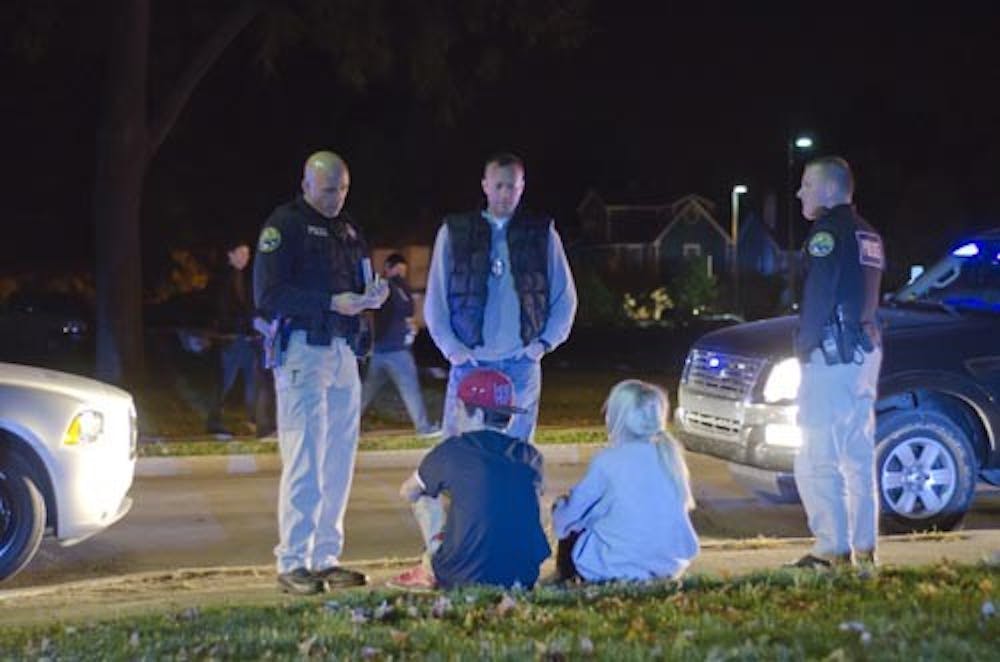THE DAILY NEWS
Indiana State Excise officers funded with a $125,000 federal grant have arrested hundreds of college-age drinkers in a crackdown on campuses across the state in 2012. Less certain is whether the campaign has achieved its goal – stemming the tide of underage drinking.
In Muncie, 567 tickets have been issued since the Intensified College Enforcement grant began in February 2012. Yet Cpl. Travis Thickstun, the agency’s spokesman, said reducing underage drinking, not more arrests, was Excise’s goal when it applied for the money and deployed officers to universities across the state.
“Our initial goal was to see how effective a very public campaign coupled with educational programs and increased enforcement would be at reducing underage drinking,” Thickstun said. “It will be some time yet before we can accurately gauge the program’s success, but it will not be measured by the numbers of tickets we issue.”
The amount of people arrested does not express a large jump since the ICE program began. Between Aug. 1, 2011 and Dec. 31, 2011, 399 people were arrested by Excise officers in Muncie. Only 324 people were arrested between Aug. 1, 2012 and Dec. 1, 2012.
Thickstun said in an interview on Dec. 13 that the reason there have been less people arrested this year is because the semester wasn’t completely over yet.
As a pilot program early in the year, Excise placed officers at three universities of varying size – Indiana University, Ball State and DePauw. Later they added Purdue, Indiana State and the University of Notre Dame.
The FBI’s Uniform Crime Report shows that drinking arrests had actually dropped at DePauw, Notre Dame and Indiana State between 2010 and 2011, before the ICE program came to their schools.
Crackdowns like ICE are not the answer, said Professor Thomas Vander Ven of Ohio University, author of “Getting Wasted: Why College Students Drink Too Much and Party So Hard.”
“You can change the drinking age or you can arrest more people, but those things that drive heavy drinking are still going to be there,” Vander Ven said. “The emotional and social benefits are so big that they will find ways to avoid the law or avoid social control.”
Vander Ven has found that underage people drink to overcome shyness, experience a sense of adventure, escape parental control and sometimes, simply for the fun of it.
“A lot of people come to these schools expecting drinking to be a big part of it,” he said. “So for some of them, the question itself of ‘why do you drink?’ is surprising because what else do you do in college? This is what you do. It’s part of the entire package.”
Jane Jones, whose name is changed to protect her identity, is only 20 years old but drinks on a fairly regular basis. Jones said she is careful when attending parties, avoiding those that are too large or located in areas likely to draw police attention.
She had a close call with police in high school when she ran from a house party that was busted. She was not caught and continues to drink now. The ICE program doesn’t worry her.
“Because I’m so careful, I don’t think I will get caught, but if I did, it wouldn’t stop me in the long run,” Jones said. “Yeah, I may stop for a few weeks or months, but it’s not going to stop me from ever partying again. To me, partying is part of the college experience that everyone should at least explore once in their life.”
Eric Seaman contributed to this article.


